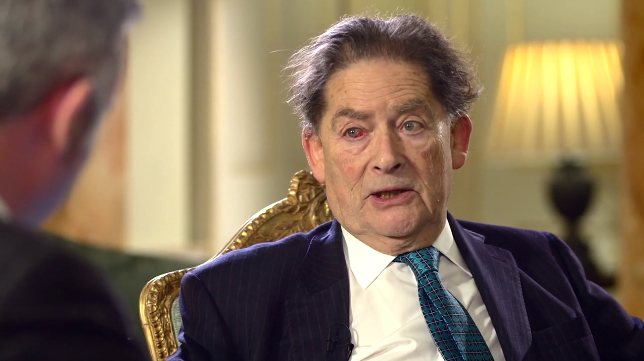Daily catch-up: Margaret Thatcher – secretive, cautious and ‘terribly wearing’
A new contemporary history venture sheds new light on a prime minister who divided opinion like no other


Congratulations to Jon Davis and my other colleagues at King’s College, London, who this week unveil their joint venture with 10 Downing Street: a video history of Margaret Thatcher.
The website features new interviews with Bernard Ingham and Nigel Lawson, with four more videos and transcripts to be published shortly. It is surprising that anyone has anything new to say after all these years, but I found both of them revelatory.
Ingham, for example, describes Thatcher as “a fairly secretive person”. Interviewed by Charles Moore, Thatcher’s official biographer, he discusses the time he “blew up” at her because he had to brief journalists at short notice about the Top Salaries Review Body’s recommendation of big pay rises.
“She agreed with me that I should not have been kept in the dark. But I’m afraid that if you have a secretive minister then that reinforces the secretiveness of the machine. And the British machine is probably the most secretive, at least it was until Tony Blair came along, the most secretive in the world. I spent the whole of my 24 years in government fighting the secrecy of the machine, as a government information officer. That’s funny isn’t it?”
Moore: “Yes. And succeeding or failing?”
Ingham: “Failing generally. If by that you mean opening it up generally, it didn’t.”
(Note the backhanded praise for Blair.)
He rejects the accusation that he damaged Thatcher’s colleagues by briefing against them. Moore says: Having interviewed all of these people over the years for my book I have a long litany of complaints about this.
Ingham: “Well I’m not surprised.”
Moore: “How would you respond?”
Ingham: “Oh I would simply say that they’re barmy. Like all politicians they gossip like mad as to who is up or who is down and then they blame the press secretary.”
Strikingly, Ingham accepts that her “very substantial improvements in the country” were won at a cost to some, and is contrite: “I'm sorry, desperately sorry, that so many people had to suffer the consequences.”
And he implies that she was to blame for her downfall: “I fully accept that she ran a terribly wearing government. She used to say: ‘If you want something done get a woman to do it. Men are only good at talking.’ And she was absolutely tactless. I mean her first words to Mr Gorbachev: ‘I hate communism.’ Totally tactless, and very wearing. Giving everybody a very bad example by the number of hours she worked. Knowing more about their jobs than some of them did.”
Nigel Lawson expresses a similar view:
“I’m going to say something which is politically incorrect I’m sure because nowadays we have to pretend that there is absolutely no difference whatever between men and women. That is not true. And one of the way it’s not true is that men have a rather sort of ‘clubby’ instinct, which is not there in women. And Margaret was very much a woman, that was one of her great strengths incidentally. And so there was not this sort of ‘clubbiness’ and so she was not particularly close, in that way, to anybody. And that is why I regret the fact as I think it would have helped her and would have helped the government if she had formed as she said she was going to and she discussed it with me at one point, to form an inner cabinet, but she eventually decided against it.”
Lawson’s views are more obviously self-serving than Ingham’s. He says she started off as a cautious politician who had to be encouraged to do radical things by ministers such as him. He gives two examples. One was privatisation, which was in the early days known as denationalisation:
“Margaret knew that all the opinion polls were showing it was unpopular and that was one of the things that made her nervous about it and unenthusiastic. Incidentally, there is a corollary of that, in the sense that we didn’t go for focus groups and we didn’t take opinion polls too seriously. In modern politics now it’s all focus groups and they are absolutely useless, absolutely useless in telling governments what they should do. If we had focus group and listened to them, there would have been no privatisation at all. And now the whole world does it.”
The second example was his 1988 Budget, which cut the top rate of income tax from 60 per cent to 40 per cent:
“It went a bit further than she instinctively felt. I mean when I said I was going to reduce the top rate from 60 per cent to 40 per cent, she was taken aback. She had agreed with me in principle before that we must get the top rate down but she thought only of getting it down from 60 per cent to 50 per cent. And when I said, ‘No, we’ll get it down to 40 per cent and have no tax rate in the whole system above 40 per cent,’ she was slightly taken aback but she went along with it and she was very happy with the Budget.”
She became less cautious, but Lawson did not think this was a good thing:
“She did change, evolve over time. And not for the better. But I don’t think there were two distinct phases, I think it was a gradual process... Prime ministers need to be cautious and think ahead but she was very cautious despite her theoretical radicalism, she was cautious in practice. She was also very much to begin with a team player, I mean obviously she was quite clear that she was the captain of the team, no two ways about that, but she did believe in a team.”

Join our commenting forum
Join thought-provoking conversations, follow other Independent readers and see their replies